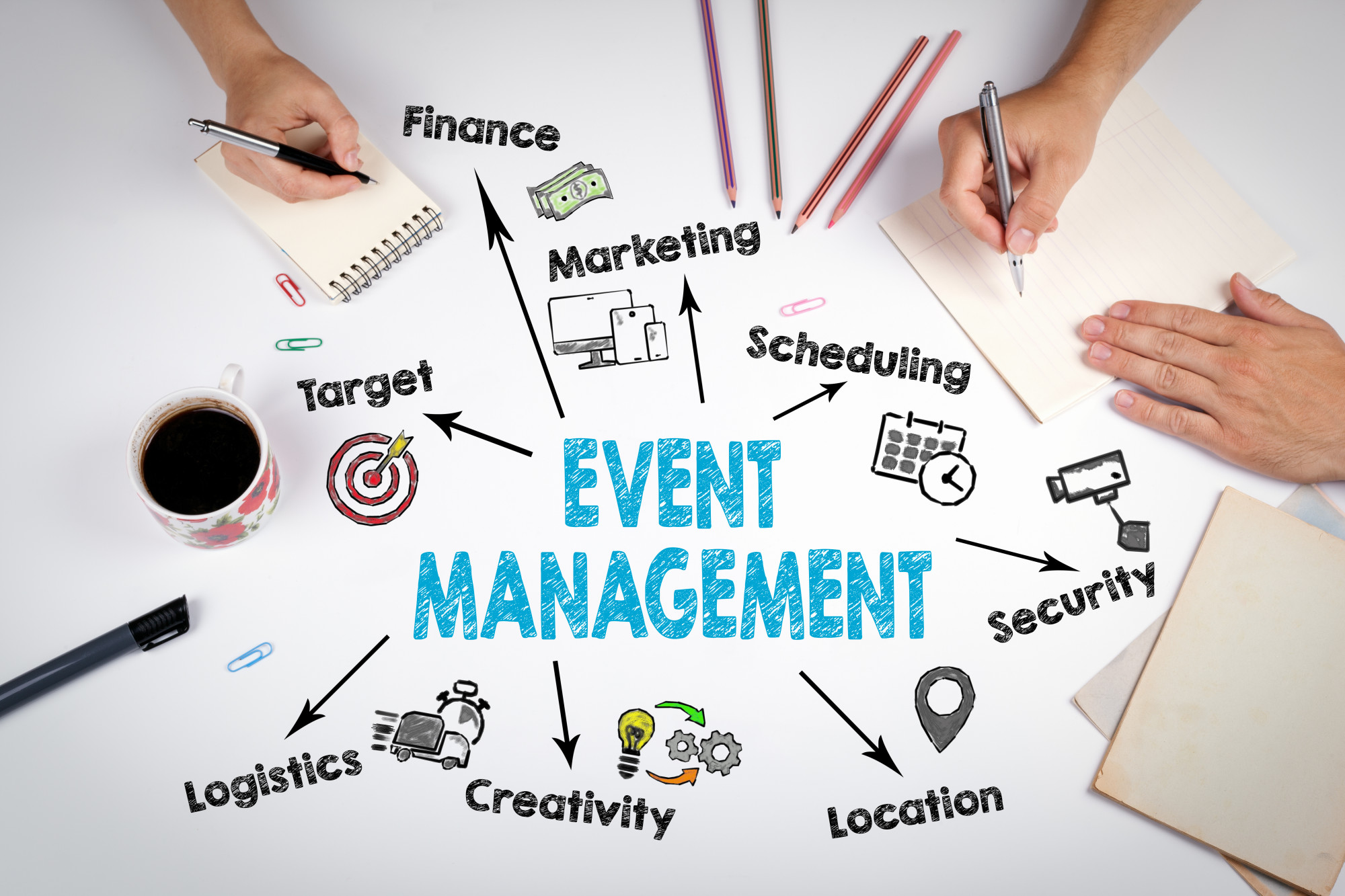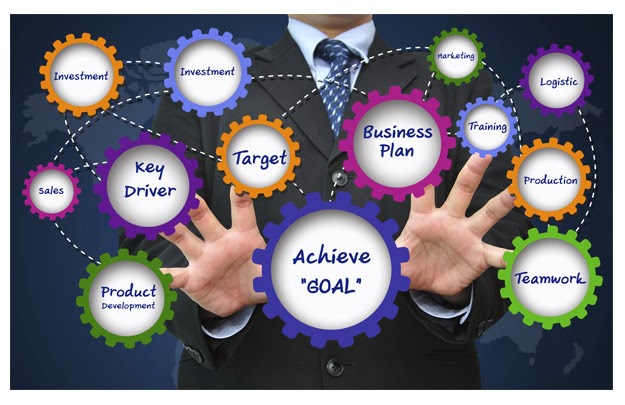A Deep Dive Into How Event Management Functions to Produce Remarkable Experiences
Event management is a complex discipline that combines numerous components to craft unforgettable experiences. It needs a clear understanding of the event's objective and target market. Coordinators must browse budgeting, logistics, and marketing to ensure a smooth implementation. Each component plays an essential function in accomplishing the preferred effect. The journey does not end with the event itself. There are insights to discover that can shape future endeavors.
The Principles of Event Management
Reliable event management encompasses a variety of vital concepts that guide the planning and execution of effective occasions. At its core, it includes understanding the event's objective, target market, and desired outcomes. Determining the target demographic is critical, as it educates choices associated to web content, advertising and marketing, and logistics.
Budgeting is an additional essential facet, ensuring that resources are allocated effectively while fulfilling the event's goals. This includes preparation for unforeseen expenditures that may occur.
Time management plays an important role, as event supervisors must develop a detailed timeline to collaborate different tasks and landmarks.
Additionally, effective communication amongst stakeholders, vendors, and team members is vital to guarantee alignment and avoid misconceptions.
Threat management have to be considered, with backup strategies in place to resolve prospective obstacles, thus enhancing the general experience for guests and assuring a smooth implementation of the event.
Secret Duties in Event Preparation
In event preparation, recognizing essential roles is essential for successful execution. The event coordinator is in charge of managing logistics and guaranteeing all elements align with the vision. Furthermore, reliable vendor management is crucial for keeping quality and fostering solid collaborations throughout the preparation process.
Event Planner Obligations
An occasion organizer orchestrates the complex elements of event preparation, making sure smooth execution from fertilization to final thought. They are liable for conceptualizing the event motif, establishing budgets, and developing timelines to maintain the project on track. Coordination with stakeholders, including customers, place managers, and volunteers, is necessary to align assumptions and facilitate interaction. The planner additionally manages logistics, such as catering, transportation, and technology requires, guaranteeing all elements operate sympathetically. They carry out site gos to, take care of schedules, and troubleshoot problems that might arise throughout the event. Post-event, the coordinator reviews the event's success, gathering responses and examining outcomes to inform future projects. This complex function calls for strong organizational abilities, attention to information, and effective social communication.
Vendor Management Fundamentals
Guiding with the landscape of supplier management is important for effective event planning. Reliable supplier management includes identifying, selecting, and collaborating suppliers who provide crucial services, such as wedding catering, audiovisual assistance, and decor. Event coordinators have to maintain strong interaction with suppliers to assure that all aspects align with the event's vision. Secret functions include the vendor manager, who oversees contracts and settlements, and the logistics coordinator, in charge of on-site setup and implementation. It's vital to establish clear expectations and timelines, cultivating a collective setting that improves the overall experience. By prioritizing these elements, event coordinators can browse possible difficulties, guaranteeing that every information contributes to a seamless and unforgettable event.
Crafting a Vision: Idea Advancement

As soon as a vision is developed, it ends up being important to convert it into actionable parts. This consists of defining the atmosphere, selecting appropriate places, and determining the event's style. Teaming up with stakeholders, consisting of sponsors and companions, further fine-tunes the idea, guaranteeing that all events share a merged understanding of the event's objective. Eventually, a strong vision not only improves attendee engagement but also establishes the stage for remarkable experiences that resonate long after the event wraps up.
Budgeting and Resource Allocation
With a clear vision in position, the next step in event management entails cautious budgeting and resource allowance. This essential phase assurances that all required parts are moneyed and lined up with the event's objectives. Event managers begin by approximating expenses related to venue selection, wedding catering, amusement, and advertising and marketing. They create a thorough budget that details each category, enabling transparency and responsibility.
Resource appropriation expands beyond finances; it additionally encompasses human sources. Recognizing group functions, duties, and timelines is vital to guarantee effectiveness. Event managers have to additionally take into consideration contingencies for unexpected expenditures or modifications in extent, developing a barrier within the budget plan.
Prioritizing costs on aspects that boost guest experiences is essential. By tactically alloting sources, event managers make best use of influence while keeping financial control. This regimented method not only fosters successful occasions but also constructs reliability and trust with stakeholders and individuals.
Logistics: The Backbone of Event Execution
While budgeting prepares for an occasion, logistics work as its foundation, guaranteeing that every element is performed smoothly and effectively. charlotte event companies. This includes a large range of tasks, including location option, transportation setups, and visite site equipment procurement. Effective logistics management requires thorough preparation and sychronisation to assure that all elements straighten with the event's timeline and goals
Key parts of logistics include inventory management, where supplies and products are tracked to avoid lacks, and staffing, which entails recruiting and training workers to handle numerous jobs. Communication is additionally critical, as it assists in cooperation among suppliers, sponsors, and the event team.

Advertising and Promo Strategies
Reliable advertising and marketing and promotion techniques are essential for making the most of presence and interaction at an event, as they produce passion and excitement amongst prospective individuals. Event supervisors utilize a mix of conventional and digital advertising and marketing methods to reach their target audience. Social media platforms, email campaigns, and targeted ads are typically utilized to develop buzz and foster area interaction. Collaborations with influencers or sector leaders can improve reputation, while engaging content such as videos and endorsements can resonate with potential participants.
On top of that, leveraging event-specific hashtags and creating shareable graphics motivates organic promotion amongst attendees. Early bird ticket deals and unique promos can incentivize registration, furthermore increasing passion. In addition, a properly designed web site that uses easy navigation and clear information about the event can boost the customer experience. By carrying out these marketing and promo approaches, event supervisors can assure greater exposure and eventually create an unforgettable experience for all participants.

Gauging Success: Responses and Assessment
Success in event management hinges on robust comments and examination devices. These processes are vital for figuring out the effectiveness of an occasion and determining locations for improvement. By gathering input from participants, coordinators can evaluate fulfillment degrees, comprehend choices, and evaluate total effect. Studies and interviews work as valuable devices for collecting quantitative and qualitative data, enabling extensive evaluation.
Additionally, evaluating key performance indicators (KPIs) such as attendance rates, engagement degrees, and this link roi (ROI) offers a more clear photo of event success. Post-event debriefing sessions with the planning group likewise add insights, cultivating a culture of constant renovation.
Ultimately, a systematic method to comments and assessment not just boosts future events yet likewise enhances relationships with stakeholders. By carrying out these strategies, event supervisors can create remarkable experiences that resonate with participants and drive continuous interaction.
Frequently Asked Questions
How Do Event Managers Take Care Of Unanticipated Obstacles Throughout an Occasion?
Event supervisors deal with unforeseen difficulties by continuing to be tranquility, evaluating the circumstance, and executing contingency plans - charlotte event companies. They interact successfully with their group, adjust rapidly, and prioritize services to assure the event proceeds smoothly and successfully
What Technology Devices Are Vital for Modern Event Management?
Necessary technology tools for modern-day event management consist of event enrollment software application, task management applications, attendee involvement platforms, and analytics devices. These sources streamline procedures, enhance communication, and improve overall event experiences for organizers and participants alike.
Just How Do Social Differences Effect Event Planning and Implementation?
Social distinctions significantly influence event preparation and execution. They influence themes, customizeds, communication designs, and assumptions, necessitating customized approaches to assure inclusivity and respect, ultimately shaping the overall experience and success of the event.
What Are the Moral Factors To Consider in Event Management?
Ethical factors to consider in event management include transparency, sustainability, cultural level of sensitivity, and inclusivity. Planners have to focus on justness, respect diverse audiences, reduce environmental impact, and assurance ease of access to develop accountable and unforgettable experiences for all participants.
Exactly How Can Sustainability Be Integrated Into Event Planning?
Sustainability can be incorporated into event preparation by making use of green products, reducing waste, look these up sourcing local vendors, implementing carbon countered programs, and advertising digital solutions to minimize paper use, thus enhancing environmental consciousness within the event's structure.